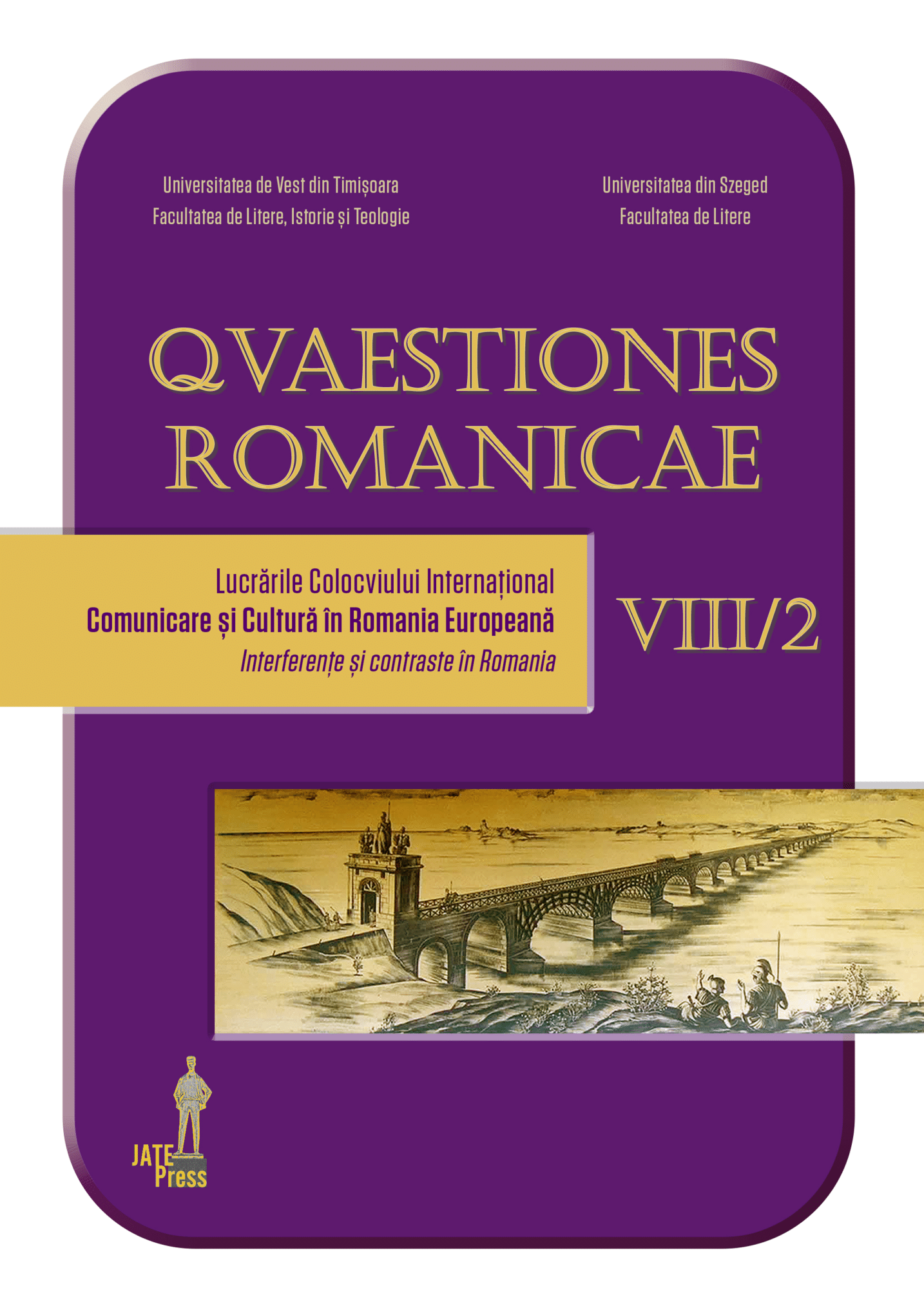Spazio e Identità: Paolo Rumiz in Appia
Space and Identity: Paolo Rumiz in Appia
Author(s): Ellen PatatSubject(s): Italian literature
Published by: Universitatea de Vest din Timişoara
Keywords: Rumiz;Appia;personal identity;national identity;travel;pilgrimage;battle;
Summary/Abstract: Walking – a modality of exploration of space that has kept its nature since ancient times with its typical Franciscan humility and that transforms feet in “the noblest organs of sense” (Rumiz, Appia, 2017) – on the one hand, leads the traveler to grasp the ‘truth’ of places, on the other hand, it makes the journey, often an initiatory one, take the form of an immersion in an inner geography or, better, into a choreography in which the individual engaged in their identity (trans)formation seeks their roots. In the footsteps of the Roman legions, on a road defined by Publius Papinius Statius the longarum regina viarum (the queen of the long roads), that is the Via Appia, the architype of all roads, in 2015 Paolo Rumiz and his patrol, as modern ‘pilgrims’ or ‘wanderers’, embarked on a journey of rediscovery that became a real battle denouncing the commodification and neglect of the territory in an attempt to reconstruct a connection between their identity and this place and its history. Modernity has engulfed the ancient road, a reflection of the Empire’s past glories and power, once a symbol of civilization and superiority as well as of commercial power. While large stretches of the road are still preserved and walkable, the undertaking becomes difficult outside the suburb of the city of Rome. The present paper aims at investigating the sense of identity that emerges from this travel account: the first focus will be on the concept of personal identity, pondering whether Rumiz could be defined a modern pilgrim, a legionary or a wandered; the second point then concentrates on the socio-cultural and national identity, taking the first steps, as Rutilius Namatianus had done, from Rome – defined by the Roman poet in his De redito suo “regina tui pulcherrima mundi” (of your world, outstanding queen) – to discover the territory of the South.
Journal: Quaestiones Romanicae
- Issue Year: VIII/2020
- Issue No: 2
- Page Range: 62-71
- Page Count: 10
- Language: Italian

